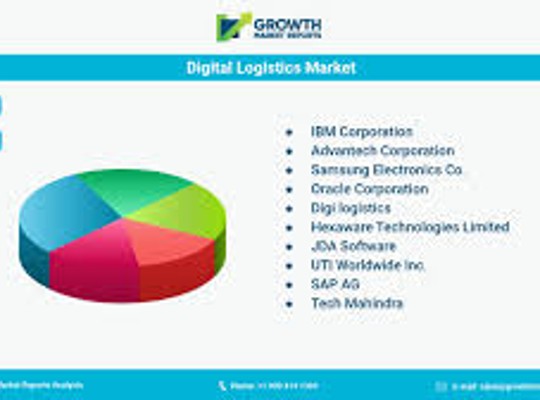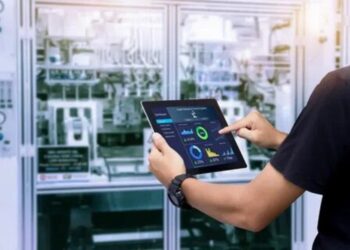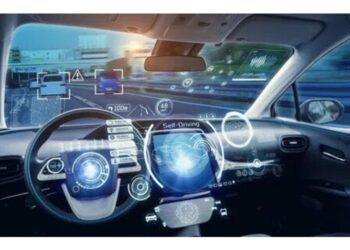The Digital Last-Mile Platform segment is experiencing a profound evolution and expansion, largely fuelled by the burgeoning e-commerce landscape. The advent of online shopping has substantially escalated the demand for efficient and seamless last-mile delivery services. In response, digital last-mile platforms have emerged as a solution to optimize and streamline delivery processes, ensuring punctual and hassle-free experiences for consumers. Leveraging cutting-edge technologies such as GPS monitoring, real-time analytics, and route optimization algorithms, these platforms are enhancing delivery efficiency to unprecedented levels. Customers now have the capability to track their deliveries in real-time, receive timely notifications, and even provide feedback, enriching the overall delivery experience.
The Global Digital Last-Mile Platform Market is on a trajectory of remarkable growth, with a valuation of US$ 6.4 Bn in 2022, expected to skyrocket to US$ 21.7 Bn by 2031. This exponential surge, with a Compound Annual Growth Rate (CAGR) of 14.5% during the forecast period from 2022 to 2031, underscores the market’s vitality and potential.
Recent Innovations
Recent developments underscore the dynamism and innovation within the sector. In May 2022, Locus, a global last-mile logistics technology firm, announced significant updates to its order-to-delivery dispatch management platform, catering to retail, third-party logistics (3PL), and courier, express, and parcel (CEP) customers. These updates include delivery-connected checkout, cross-fleet utilization, and dark shop optimization, enhancing operational efficiency and customer satisfaction.
In November 2022, Milkman S.P.A. partnered with SAP SE to offer its Milkman Last Mile Platform through SAP Store, providing real-time updates on delivery progress and rescheduling options, thus augmenting transparency and flexibility for customers.
Key Players
Prominent players in the Digital Last-Mile Platform Market include:
- Onfleet, Inc.
- FarEye Technologies, Inc.
- The Descartes Systems Group Inc.
- Shipwell, Inc.
- Shipsy.io
- Onro, Inc.
- Scurri Ltd.
- Loginext Solutions Private Limited
- Zebra Technologies Corporation
- Click Labs Inc (Tooken)
- Bringg Delivery Technologies Ltd
- WorkWave LLC
Market Segmentation
The Digital Last-Mile Platform Market exhibits a diverse landscape, segmented based on various factors, reflecting the multifaceted nature of the industry and catering to a wide array of end-users. Here’s a detailed breakdown of the market segmentation:
Component
- Software / Platform: This segment encompasses the software and platforms that form the backbone of digital last-mile solutions. These include sophisticated algorithms, real-time analytics engines, and user-friendly interfaces that enable seamless last-mile delivery operations.
- Services: Complementary services play a crucial role in the digital last-mile ecosystem. These services may include implementation support, training, maintenance, and ongoing optimization to ensure the smooth functioning of digital last-mile platforms.
Deployment
- Cloud: Cloud-based deployment offers scalability, flexibility, and accessibility. Digital last-mile platforms deployed on the cloud provide real-time data access, ease of integration, and cost-effectiveness, catering to the dynamic needs of modern businesses.
- On-premise: For organizations requiring greater control over their infrastructure and data security, on-premise deployment offers a viable solution. On-premise digital last-mile platforms are hosted locally, providing enhanced data governance and customization options.
Application
- Route Optimization: Route optimization lies at the core of digital last-mile platforms, enabling efficient allocation of resources, minimizing delivery times, and reducing fuel consumption. Advanced algorithms analyze various parameters to determine the most optimal delivery routes.
- Tracking: Real-time tracking capabilities empower both businesses and consumers to monitor the progress of deliveries accurately. Through GPS technology and tracking interfaces, stakeholders can stay informed about shipment locations, estimated arrival times, and potential delays.
- Customer Communication: Effective communication is vital for enhancing the delivery experience. Digital last-mile platforms facilitate seamless interaction between delivery personnel and customers, providing updates, delivery notifications, and channels for feedback and rescheduling.
- Analytics & Reporting: Data-driven insights derived from digital last-mile platforms enable organizations to optimize performance, identify bottlenecks, and make informed decisions. Analytics and reporting functionalities offer valuable metrics on delivery efficiency, customer satisfaction, and operational performance.
- Others: This category encompasses additional applications and features tailored to specific industry requirements or emerging trends within the digital last-mile landscape.
End-user
- Logistics: The logistics sector forms a cornerstone of the digital last-mile ecosystem, leveraging technology to streamline operations, improve delivery efficiency, and meet evolving customer demands.
- Retail & E-commerce: With the exponential growth of online retail, digital last-mile platforms have become indispensable for retailers and e-commerce enterprises. These platforms enable timely deliveries, order tracking, and seamless customer experiences.
- Healthcare: The healthcare industry relies on efficient last-mile delivery for medical supplies, pharmaceuticals, and patient care products. Digital last-mile platforms in healthcare ensure timely delivery, temperature-sensitive transport, and regulatory compliance.
- Food & Beverage: From meal delivery services to grocery deliveries, the food and beverage sector benefits immensely from digital last-mile solutions. These platforms optimize delivery routes, maintain food safety standards, and enhance customer satisfaction.
- Others: This category encompasses additional industries and sectors leveraging digital last-mile platforms to meet their specific delivery needs and operational requirements.
As the Digital Last-Mile Platform Market continues to evolve, these segmented categories provide insights into the diverse applications, functionalities, and end-user preferences driving growth and innovation within the industry.













